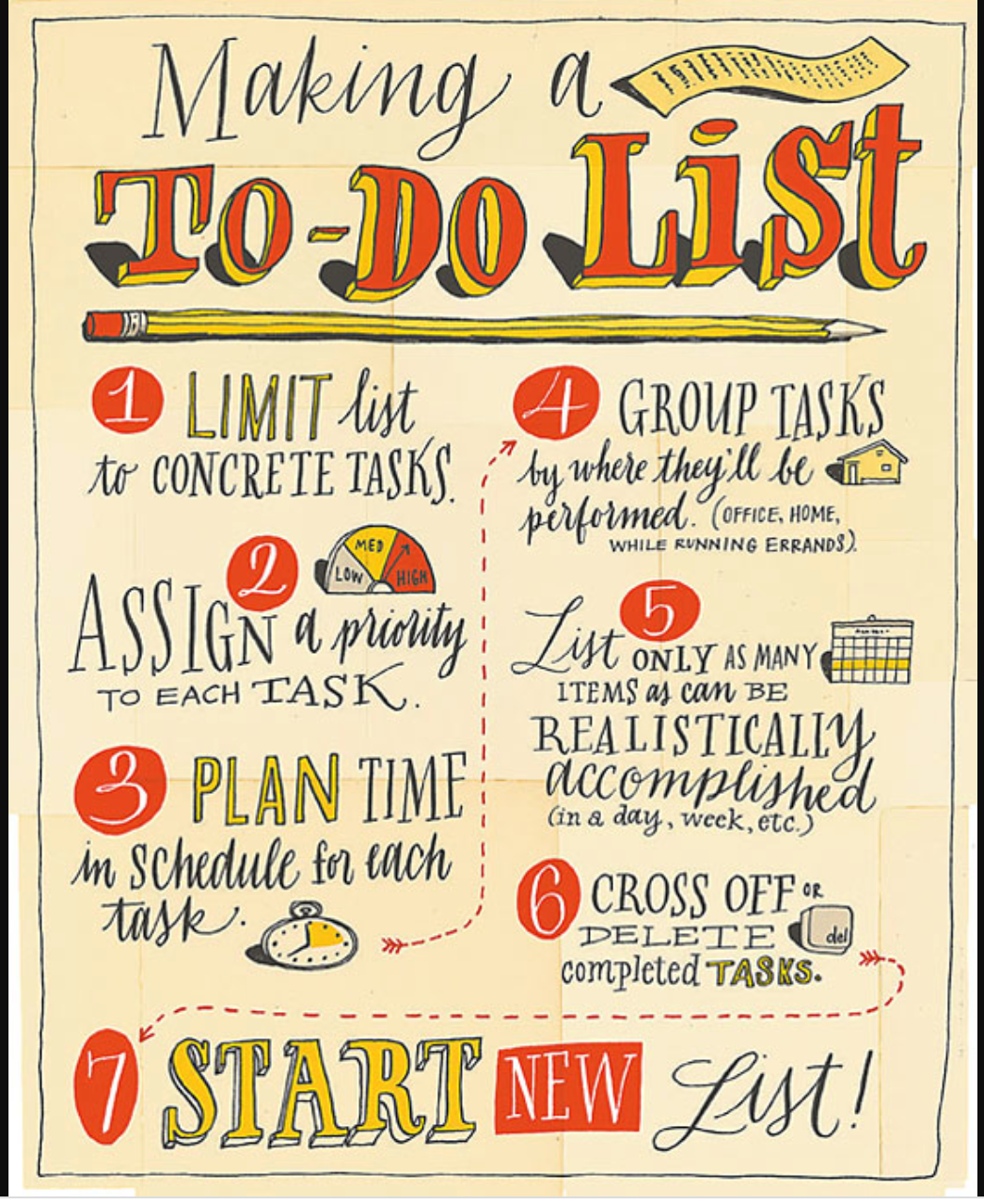
What is Time Management?
Time management and productivity are hot topics for good reason. Hustle culture and the general demands of modern life mean that time management is harder yet more important than ever. Time, unlike other resources such as money, is finite and cannot be gained. Moreover, everyone has the same amount in a given day or week. Time is a funny thing- it inevitably passes whether we want it to or not, whether we are ready or not. While some people seem to have more time than others, they do not- they are simply using and managing their time in a more efficient and desirable way.
Time management is a commonly used term and refers to a person’s ability to plan and execute short-and long-term tasks in order to efficiently utilize one’s time. Since success in all domains of life hinges on getting things done and getting where we need to go within given time frames, time management is clearly an important skill set for personal, academic, and professional success.
Does Time Management Work?
A recent meta-analysis found that time management skills are, in fact, correlated with better work performance and greater wellbeing. Successful time management allows us to prioritize daily tasks, execute effective project management, return phone calls in a timely way, leave unimportant tasks by the wayside, experience less stress, and still get enough sleep. Managing your time effectively can have a variety of personal, professional, and social benefits.
Consequences of Time Mismanagement
Some people intrinsically have a better handle on time and know how to prioritize, plan, and execute tasks to meet internal and external deadlines and demands while others struggle every day. Unfortunately, being chronically late and mismanaging one’s time invariably carries various negative consequences such as poor grades, job loss (or lack of promotion and success), and relationship failure. Failure to manage time and complete tasks efficiently also leads to increased stress levels and, ironically, less time for yourself.
Since time management is essentially task-management, those who struggle with these skills also end up suffering by simply never getting to the things they want to get to, despite having the same amount of time as the rest of us. This is a sad state of affairs; we all work hard and deserve to maximize the fruits of our labors, yet time mismanagement frequently prevents people from being able to achieve their goals and fully enjoy their lives.
Manage Your Time, Manage Your Life
Managing one’s time is therefore essential for managing one’s life; I have yet to meet an adult who struggles with time management and timeliness, but doesn’t struggle with other aspects of managing their lives (i.e. money, job/career, friends, family, and romantic relationships, maybe even health).
High achievers generally have good time management skills and have learned to spend an appropriate amount of time on tough tasks and daily to-do’s. Again, a successful life (in whatever way one defines success) requires an ability to realistically plan and execute tasks in an efficient and timely way.
Effective time management strategies rely heavily on metacognition and reflect an entire set of schematics. Becoming a better time manager therefore requires you to be self-aware and potentially change your mindset, in addition to practical strategies. While people who naturally struggle with time management may always have to actively work on these skills to achieve success. However, with purposeful practice via strategies and internal and external reinforcement, they can make vast improvements in their ability to manage time.
Some of the best strategies are the simplest – as they say, you cannot reinvent the wheel! Most people already know that they should make a daily to-do list, take a short walk each day, and answer emails before they start piling up. Sometimes implementing these productivity strategies is easier said than done and requires a mindset shift. As in, just because we know what to do and even how to do it doesn’t mean that we have yet achieved the mental awareness, arrangement, and adaptation for successful follow through.
Time Management Needs To Be Taught
There is broad consensus that time management is an important skill set. Most people acknowledge that good time management skills will benefit many areas of their lives. Recent research revealed that college students widely reported setting goals related to good time management, organization, and productivity. However, the study found that many students did not know effective strategies to implement for better productivity and task management. So even though they had set goals for time management and organization, few were able to follow thorugh. The researchers concluded that these students would benefit from explicit instruction on time management. This includes learning how to use to do lists, avoid wasted time, stick to a schedule, and implement other specific activities for greater control of their time.

In addition to practical strategies for time management, the list below contains some metacognitive strategies to help you become more aware of your thinking.
Time Management Tips and Strategies
1. Wear a timepiece
This may seem obvious, but many people no longer wear a watch because it seems we all have our phones out, constantly. Your phone, however, does not count! Your phone can’t always be out and easily glanced at, while a wearable timepiece can.
A timepiece can be a traditional watch, a smartwatch, a pocketwatch or watch fob if you’re old school and dapper. The point is to wear a watch on your body if you are struggling with time management.
2. Set alarms
Set timers and alarms as reminders, to keep you on schedule, and as firm start- and endpoints for various tasks. Any alarm or time tracking tool will work, and use multiple alarms/notifications if needed. Technology makes it easy to sync these with your calendar, such as Google or iCal, reducing the mental energy needed to accomplish this.
3. Make a schedule and stick to it…but know when to be flexible
Create a calendar and block out the time you need to complete a given task. If you tend to run late or behind in finishing, know thyself and build in extra time!
Life throws constant curveballs, so flexibility is a must. If one task or scheduled chunk of time gets interrupted, make sure you realistically look at when you can finish that task and reschedule time right away.
In order to practice effective time management, setting priorities is a must. You must know and heed the most important tasks for you to complete each day and week.
4. Stay focused on the task at hand until it’s complete
One problem I’ve observed with people who are chronically late and mismanage time is that they will “bounce” from task to task, never really finishing one but starting several.
This creates chaos and disorganization because several balls are now in the air, causing you to lose focus and efficiency.
Create time limits for each task and use checklists to physically mark off each as you complete them. Don’t allow yourself to get sidetracked and move on to something else.
5. Use task analysis
Task analysis means breaking down large tasks into smaller tasks or manageable steps that can be done individually.
Task analysis allows us to complete a micro task and move on, rather than get mired down in the larger task or project, which can cause us to lose focus and work inefficiently.
Ex. Instead of “write research paper” as the task, break this large process/action into several smaller ones such as “find one article,” “read and take notes on article,” “write thesis,” etc.
Again, this may seem obvious, but many people don’t break down these large projects into micro tasks, leaving them feeling overwhelmed with the large task and often sending them into avoidance and procrastination.
6. Keep a “Time Journal”
Even time management professionals rarely discuss this strategy, but time journaling means honestly recording how you have spent your time after the fact. Keeping a time journal is like maintaining a food journal and requires one to honestly track and record their usage of time to maintain accountability and notice patterns (“Oh, I WAS 15 minutes late to that meeting…”).
A time journal, occasionally called a productivity journal, should be used to record your time patterns and expenditures after your time has been spent. It’s not a planner and is not about how we want to spend our time, but is about identifying our patterns so we can find solutions and strategies to overcome time mismanagement and chronic lateness.
For example, time journaling may allow you to see that you’ve consistently been 15 minutes late to meetings or events, so you can start making your leave time 20 minutes earlier. Time journaling can result in insightful reports which help you identify time wasters and other nonproductive behaviors. Honestly assessing how you’re using time will vastly improve your time management skills, ultimately improving the quality of your daily life.
7. Don’t over promise or overreach your ability to be timely
This is more about managing expectations than becoming more timely. When you have some control of a meeting time or project deadline, overestimate how much time it will take you to get there or complete a project. Essentially, you want to set low expectations for those you are meeting or completing work for. Better to be early than late!
8. Consider those around you
This is a metacognitive strategy more than a practical one, and may sound like an odd approach. However, people who are chronically late often seem to focus on themselves and their own concept of time. However, we must consider how social our world is and that our ability to function becomes hindered when we can’t seem to get things done and get where we need to be on time.
By thinking about how our lateness affects family, friends, coworkers, etc…we may feel more responsible for others’ experiences in these social settings. This should add an additional layer of motivation to implement the strategies that will help us become more timely, thereby making those around us feel more valued, respected, and satisfied.
9. Use friends, family, and professionals as accountability
Recognize enablers and ask them to instead keep you accountable.
Set consequences for yourself, and heed natural, external consequences. As in, “Oh, I missed hanging out with my family at the event because I was 45 minutes late, and that’s on me. Next time I need to be more timely and I’ll get what I want out of the situation- to spend time with the people I love.”
This sounds simple and obvious, but many of us don’t make the explicit connection between our actions and outcomes. Metacognitive messages like this can help us repattern our behavior and reinforce positive behaviors.
10. If you realize that you are behind and will run late for a meeting or deadline, be proactive and let people know in advance
Lateness will still happen sometimes, even with the most effective strategies to mitigate time mismanagement.
Everyone knows they are running late or will be unable to meet a deadline before it actually happens, so let people know as soon as you see this happening. On a personal level, this allows people to modify their plans and expectations, alleviating potential upset. In a professional or academic situation, providing advance notice can actually give you some breathing room to get done what you need to, such as receiving an extension on a paper or project due date.
Time Management Skills Come with Practice
Everyone has multiple tasks to accomplish in a day, and time management skills can help us prioritize tasks and be more purposeful with how we are spending time. No one is a perfect time manager, but if you find yourself chronically and consistently misappropriating your time and running late for life, there is hope! Learning how to effectively manage your time and important tasks is a process and takes time and practice. By implementing these simple strategies, and reaching out to The Savvy Tutor for help if needed, we can all achieve more productive and happy lives.
